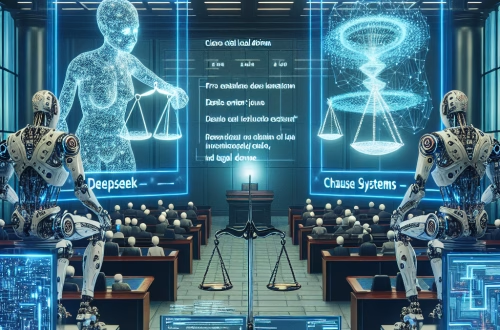Sundar Pichai AI Vision 2025
Summary:
Sundar Pichai, CEO of Google and Alphabet, has laid out an ambitious AI vision for 2025, focusing on democratizing AI, enhancing ethical AI development, and integrating AI into daily life. This vision emphasizes the role of Google’s AI models, including advancements in generative AI, machine learning, and responsible innovation. Pichai’s roadmap includes making AI accessible to businesses and individuals while addressing societal challenges. Understanding this vision is critical as it shapes how AI will evolve, impacting industries, workplaces, and personal technology use.
What This Means for You:
- Increased Accessibility to AI Tools: Google’s AI vision 2025 aims to simplify AI adoption for small businesses and individuals. Expect user-friendly AI applications in productivity, healthcare, and education, reducing the technical barriers to leveraging AI.
- Ethical AI Development Awareness: As AI becomes more prevalent, Google is prioritizing ethical considerations. Stay informed about data privacy, bias mitigation, and transparency in AI to ensure responsible usage in your projects or workplace.
- Upskilling for AI Integration: With AI playing a larger role in industries, invest in learning about AI models like Google’s Gemini or TensorFlow. Online courses and certifications can help you stay ahead in an AI-driven job market.
- Future Outlook or Warning: While AI advancements promise efficiency and innovation, risks like job displacement and misinformation require proactive solutions. Pichai’s vision stresses collaboration among tech leaders, policymakers, and educators to navigate these challenges.
Explained: Sundar Pichai AI Vision 2025
The Core of Google’s AI Vision
Sundar Pichai’s AI vision for 2025 revolves around three key pillars: democratization, ethical responsibility, and seamless integration. Google aims to make AI tools like TensorFlow, Gemini, and other proprietary models more accessible to developers, businesses, and everyday users. Pichai highlights the importance of “AI-first” thinking—a strategy where AI drives innovation in search, cloud computing, and consumer tech.
Advancements in Generative AI
Google is investing heavily in generative AI models, such as its Gemini project, to enhance creativity and problem-solving. These models will improve applications in content creation, coding assistance, and personalized recommendations. The goal is to create AI that augments human capabilities rather than replaces them.
Ethical AI and Societal Impact
Google’s commitment to ethical AI involves reducing biases in datasets, enhancing transparency, and ensuring AI aligns with societal values. Pichai’s vision emphasizes collaboration with global policymakers to establish AI governance frameworks, addressing concerns like deepfakes, privacy, and automation-induced job shifts.
Strengths and Limitations
Strengths: Google’s AI initiatives benefit from vast datasets, advanced compute infrastructure, and a strong research culture. Models like Gemini are optimized for multi-modal inputs (text, images, and code).
Limitations: Challenges include ensuring fairness across diverse populations, scalability of AI ethics practices, and competition from rivals like OpenAI and Meta. Additionally, reliance on centralized cloud AI may raise concerns about data sovereignty.
Best Use Cases
- Business Automation: AI-powered tools for customer service analytics and supply chain optimization.
- Healthcare: AI-driven diagnostics and personalized treatment recommendations.
- Education: Adaptive learning platforms that tailor content to students’ needs.
People Also Ask About:
- What is Sundar Pichai’s goal for AI by 2025? Pichai’s goal is to make AI more accessible, ethical, and integrated into everyday tools. This includes expanding Google’s AI models like Gemini and ensuring they align with societal benefits while minimizing risks.
- How will Google’s AI vision affect small businesses? Google plans to offer affordable, scalable AI solutions for small businesses, enabling automation, improved customer engagement, and data-driven decision-making through AI-powered analytics.
- Is Google focusing on AI ethics in its 2025 vision? Yes, ethical AI is a priority, with initiatives to reduce bias, enhance transparency, and collaborate on regulatory standards to ensure responsible AI deployment.
- What are the risks associated with Google’s AI advancements? Risks include potential job displacement, misuse of generative AI (e.g., deepfakes), and data privacy concerns—areas where Google is actively developing safeguards.
Expert Opinion:
Experts emphasize the need for balanced AI deployment, where innovation does not outpace regulation. Google’s focus on ethical AI and accessibility is commendable, but the rapid evolution of AI models requires continuous oversight. Users should remain vigilant about data usage and advocate for transparency in AI-driven decisions.
Extra Information:
- Google AI Blog – Official updates on Google’s AI projects, including Gemini and responsible AI practices.
- TensorFlow – Google’s open-source AI framework, pivotal for developers working with machine learning.
Related Key Terms:
- Sundar Pichai AI strategy 2025
- Google Gemini AI model features
- Ethical artificial intelligence guidelines
- AI democratization for businesses
- Future of generative AI 2025
Check out our AI Model Comparison Tool here: AI Model Comparison Tool
#Sundar #Pichais #Vision #Google #Plans #Transform #Future #Technology
*Featured image generated by Dall-E 3





